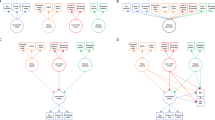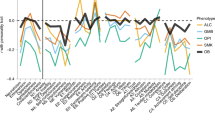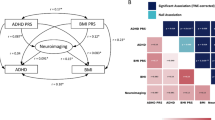Abstract
Our dramatically changed food environment—since periods in our history when food sources were highly constrained—has presented new challenges for obesity research. For example, these alterations have strongly emphasized the physiological differences between the homeostatic and the hedonic regulation of food intake—the latter being largely responsible for the pronounced increase in obesity in the past few decades. There is also increasing agreement that compulsive overeating shares many parallels with addiction disorders such as drug abuse. These factors have also fostered a renewed interest in identifying individual differences in personality and motivational systems that increase the risk for overeating and weight gain in our population. Reward sensitivity has been the focus of a recent body of compelling research, with evidence favoring two seemingly opposite points of view. On the one hand, studies have found support for a link between low reward sensitivity and obesity, whereas other evidence suggests that a strong appetitive motivation leads to overeating and weight gain. Arguments are provided to reconcile these apparently disparate theories. Finally, the role of impulsivity and its links with symptoms of attention deficit/hyperactivity disorder are discussed, as well as their respective roles in the risk profile for obesity.
This is a preview of subscription content, access via your institution
Access options
Subscribe to this journal
Receive 12 print issues and online access
$259.00 per year
only $21.58 per issue
Buy this article
- Purchase on Springer Link
- Instant access to full article PDF
Prices may be subject to local taxes which are calculated during checkout
Similar content being viewed by others
References
Carter JC, Davis C . An addiction model of binge eating disorder. In: Johnson BA (ed). Addiction Disorders and Substance Abuse. Springer: New York (in press).
Lilenfeld LRR, Ringham R, Kalarchian MA, Marcus MD . A family history study of binge-eating disorder. Compr Psychiatry 2008; 49: 247–254.
Frazao E, Allshore J . Strategies for intervention: commentary and debate. J Nutr 2003; 133: 844S–847S.
Lowe MR, Levine AS . Eating motives and the controversy over dieting: eating less than needed versus less than wanted. Obes Res 2005; 13: 797–805.
Sturm R . Increases in clinically severe obesity in the United States, 1986–2000. Arch Intern Med 2003; 163: 2146–2148.
Volkow ND, O’Brien CP . Issues for DSM-V: Should obesity be included as a brain disorder? Am J Psychiatry 2007; 164: 708–710.
Kreek MJ, Nielson DA, Butelman ER, LaForge KS . Genetic influences on impulsivity, risk taking, stress responsivity and vulnerability to drug abuse and addiction. Nat Neurosci 2005; 8: 1450–1457.
Jimenez-Arriero MA, Ponce G, Rodriguez-Jimenez R, Aragues M, Galvan A, Rubio G et al. Taq1-A polymorphism linked to the DRD2 gene and P300 in alcoholic patients. Eur J Psychiatry 2006; 20: 45–53.
Wang GJ, Volkow ND, Thanos PK, Fowler JS . Similarity between obesity and drug addiction as assessed by neurofunctional imaging: a concept review. J Addict Dis 2004; 23: 39–53.
Morton LM, Wang SS, Bergen AW, Chatterjee N, Kvale P, Welch R et al. DRD2 genetic variation in relation to smoking and obesity in the Prostate, Lung, Colorectal, and Ovarian Cancer Screening Trial. Pharmacogen Genom 2006; 16: 901–912.
Wang GJ, Volkow ND, Logan J, Pappas NR, Wong CT, Zhu W et al. Brain dopamine and obesity. Lancet 2001; 357: 354–357.
Stice E, Spoor S, Bohon C, Small DM . Relation between obesity and blunted striatal response to food is moderated by Taq1A allele. Science 2008; 322: 449–452.
Neville MJ, Johnstone EC, Walton RT . Identification and characterization of ANKK1: a novel kinase gene closely linked to DRD2 on chromosome band 11q23.1. Hum Mut 2004; 23: 540–545.
Jonsson EG, Nothen NM, Grunhage F, Farde L, Nakashima Y, Propping P et al. Polymorphisms in the dopamine D2 receptor gene and their relationships to striatal dopamine receptor density of healthy volunteers. Mol Psychiatry 1999; 4: 290–296.
Chen TJH, Blum K, Kaata G, Braverman E, Pullin D, Downs BV et al. Reviewing the role of putative candidate genes in “Neurobesigenics”, a clinical subtype of Reward Deficiency Syndrome (RDS). Gene Ther Mol Biol 2007; 11A: 61–74.
Davis C, Patte K, Levitan RD, Reid C, Tweed S, Curtis C . From motivation to behaviour: a model of reward sensitivity, overeating, and food preferences in the risk profile for obesity. Appetite 2007; 48: 12–19.
Loxton NJ, Dawe S . Reward and punishment sensitivity in dysfunctional eating and hazardous drinking women: associations with family risk. Appetite 2006; 47: 361–371.
Beaver JD, Lawrence AD, van Ditzhuijzen J, Davis MH, Woods A, Calder AJ . Individual differences in reward drive predict neural responses to images of food. J Neurosci 2006; 26: 5160–5166.
Davis C, Fox J . Sensitivity to reward and body mass index (BMI): evidence for a non-linear relationship. Appetite 2008; 50: 43–49.
Davis C, Levitan RD, Reid C, Carter JC, Kaplan AS, Patte K et al. Dopamine for ‘wanting’ and opioids for ‘liking’: a comparison of obese adults with and without binge eating. Obesity 2009 (in press).
Hayward MD, Low MJ . Naloxone's suppression of spontaneous and food-conditioned locomotor activity is diminished in mice lacking either the dopamine D(2) receptor or enkephalin. Brain Res Mol Brain Res 2005; 140: 91–98.
Olszewski PK, Levine AS . Central opioids and consumption of sweet tastants: when reward outweighs homeostasis. Physiol Behav 2007; 91: 506–512.
Bart G, Kreek MJ, Ott J, LaForge KS, Proudnikov D, Pollak L et al. Increased attributable risk related to a functional mu-opioid receptor gene polymorphism in association with alcohol dependence in central Sweden. Neuropsychopharmacology 2005; 30: 417–422.
Barr CS, Schwandt ML, Lindell SG, Higley JD, Maestripieri D, Goldman D et al. Variation at the mu-opioid receptor gene (OPRM1) influences attachment behavior in infant primates. Proc Natl Acad Sci USA 2008; 105: 5277–5281.
Filbey FM, Ray L, Smolen A, Claus ED, Audette A, Hutchison KE . Differential neural response to alcohol priming and alcohol taste cues is associated with DRD4 VNTR and OPRM1 genotypes. Alcohol Clin Exper Res 2008; 32: 1–11.
Will MJ, Franzblau EB, Kelley AE . The amygdala is critical for opioid-mediated binge eating of fat. Neuroreport 2004; 15: 1857–1860.
Steiger H, Bruce KR . Phenotypes, endophenotypes, and genotypes in bulimia spectrum eating disorders. Can J Psychiatry 2007; 52: 220–227.
Vassileva J, Petkova P, Georgiev S, Martin EM, Tersiyski R, Raycheva M et al. Impaired decision-making in psychopathic heroin addicts. Drug Alcohol Depend 2007; 86: 287–289.
Guerrieri R, Nederkoorn C, Jansen A . The interaction between impulsivity and a varied food environment: its influence on food intake and overweight. Int J Obesity 2008; 32: 708–714.
Damasio AR . Descartes’ Error: Emotion, Reason, and the Human Brain. Grosset/Putnam: New York, 1994.
Bechara A . The role of emotion in decision-making: evidence from neurological patients with orbitofrontal damage. Brain Cogn 2004; 55: 30–40.
Verdejo-Garcia A, Vilar-Lopez R, Perez-Garcia M, Podell K, Goldberg E . Altered adaptive but not veridical decision-making in substance dependent individuals. J Int Neuropsychol Soc 2006; 12: 90–99.
Boeka AG, Lokken KL . The Iowa gambling task as a measure of decision making in women with bulimia nervosa. J Int Neuropsychol Soc 2006; 12: 741–745.
Davis C, Levitan RD, Muglia P, Bewell C, Kennedy JL . Decison-making deficits and overeating: a risk model for obesity. Obes Res 2004; 12: 929–935.
Verdejo-Garcia A, Bechara A, Recknor EC, Perez-Garcia M . Negative emotion-driven impulsivity predicts substance dependence problems. Drug Alcohol Depend 2007; 91: 213–219.
Davis C, Patte K, Levitan RD, Carter JC, Kaplan AS, Zai C et al. A Psycho-genetic study of associations between the symptoms of binge eating disorder and those of attention deficit (hyperactivity) disorder. J Psychiatric Res 2009; 43: 687–696.
Altfas JR . Prevalence of attention deficit/hyperactivity disorder among adults in obesity treatment. BMC Psychiatr 2002; 2: 1–8.
Cassin SE, von Ranson KM . Is binge eating experienced as an addiction? Appetite 2007; 49: 687–690.
Ondo WG, Lai DJ . Predictors of impulsivity and reward seeking behavior with dopamine agonists. Parkinsonism Relat Disord 2008; 14: 28–32.
Davis C, Patte K, Levitan RD, Reid C, Tweed S, Curtis C . From motivation to behaviour: a model of reward sensitivity, overeating, and food preferences in the risk profile for obesity. Appetite 2007; 48: 12–19.
Acknowledgements
This study has been funded both by the Canadian Institute of Health Research and by the Social Sciences and Humanities Research Council of Canada.
Author information
Authors and Affiliations
Corresponding author
Rights and permissions
About this article
Cite this article
Davis, C. Psychobiological traits in the risk profile for overeating and weight gain. Int J Obes 33 (Suppl 2), S49–S53 (2009). https://doi.org/10.1038/ijo.2009.72
Published:
Issue Date:
DOI: https://doi.org/10.1038/ijo.2009.72
Keywords
This article is cited by
-
Genetic evidence for the causal relations between metabolic syndrome and psychiatric disorders: a Mendelian randomization study
Translational Psychiatry (2024)
-
Time pressure promotes habitual control over goal-directed control among individuals with overweight and obesity
Current Psychology (2024)
-
Top-down guidance of attention to food cues is enhanced in individuals with overweight/obesity and predicts change in weight at one-year follow up
International Journal of Obesity (2019)
-
Examining the Associations Between Overeating, Disinhibition, and Hunger in a Nonclinical Sample of College Women
International Journal of Behavioral Medicine (2014)
-
Shared Urges? The Links Between Drugs of Abuse, Eating, and Body Weight
Current Obesity Reports (2013)



